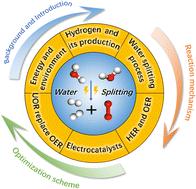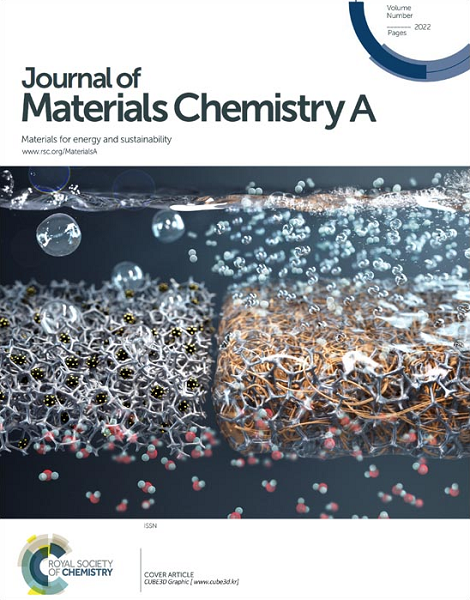Advancements in water electrolysis: enhancing hydrogen and oxygen production efficiency through electrocatalyst design and urea oxidation
IF 9.5
2区 材料科学
Q1 CHEMISTRY, PHYSICAL
引用次数: 0
Abstract
In light of growing energy shortages and environmental challenges, hydrogen energy has emerged as a promising renewable energy alternative to fossil fuels. Among various production methods, water electrolysis (WE) is notable for generating large-scale, high-purity hydrogen without pollution. However, conventional WE faces challenges such as high overpotentials, leading to inefficient energy use and increased costs, thus necessitating further improvements. Incorporating highly efficient electrocatalysts has proven to enhance hydrogen production by increasing current density at similar thermodynamic potentials. Additionally, the introduction of small organic oxidation molecules like urea has been shown to effectively reduce overpotentials and improve electrochemical performance, thereby enhancing overall WE efficiency. This review first elucidates the fundamental principles and key concepts of WE, and then highlights recent advancements in electrocatalyst design and optimization strategies. Special emphasis is placed on reducing overpotentials and improving process efficiency through electrolyte modifications, particularly the urea oxidation reaction (UOR). Meanwhile, this review analyzes the structural properties and catalytic activities of electrocatalysts to improve the efficiency of WE. It highlights advancements in reducing overpotentials, enhancing reaction kinetics, and achieving energy savings while emphasizing environmental benefits, which guides future research and innovation in optimizing hydrogen production, supporting clean energy, and reducing fossil fuel dependence.

水电解的进展:通过电催化剂设计和尿素氧化提高氢和氧的生产效率
鉴于日益严重的能源短缺和环境挑战,氢能已成为一种有前途的可再生能源替代化石燃料。在各种生产方法中,水电解(WE)以生产大规模、高纯度、无污染的氢气而闻名。然而,传统WE面临着高过电位等挑战,导致能源使用效率低下和成本增加,因此需要进一步改进。结合高效电催化剂已被证明可以在相似的热力学势下通过增加电流密度来提高氢气的产量。此外,尿素等小有机氧化分子的引入已被证明可以有效地降低过电位并改善电化学性能,从而提高整体WE效率。本文首先阐述了电催化的基本原理和关键概念,然后重点介绍了电催化剂设计和优化策略的最新进展。特别强调的是通过电解质修饰,特别是尿素氧化反应(UOR)来降低过电位和提高工艺效率。同时,对电催化剂的结构特性和催化活性进行了分析,以期提高WE的效率。它强调了在降低过电位、增强反应动力学和实现节能方面的进步,同时强调了环境效益,这将指导未来在优化氢气生产、支持清洁能源和减少对化石燃料依赖方面的研究和创新。
本文章由计算机程序翻译,如有差异,请以英文原文为准。
求助全文
约1分钟内获得全文
求助全文
来源期刊

Journal of Materials Chemistry A
CHEMISTRY, PHYSICAL-ENERGY & FUELS
CiteScore
19.50
自引率
5.00%
发文量
1892
审稿时长
1.5 months
期刊介绍:
The Journal of Materials Chemistry A, B & C covers a wide range of high-quality studies in the field of materials chemistry, with each section focusing on specific applications of the materials studied. Journal of Materials Chemistry A emphasizes applications in energy and sustainability, including topics such as artificial photosynthesis, batteries, and fuel cells. Journal of Materials Chemistry B focuses on applications in biology and medicine, while Journal of Materials Chemistry C covers applications in optical, magnetic, and electronic devices. Example topic areas within the scope of Journal of Materials Chemistry A include catalysis, green/sustainable materials, sensors, and water treatment, among others.
 求助内容:
求助内容: 应助结果提醒方式:
应助结果提醒方式:


